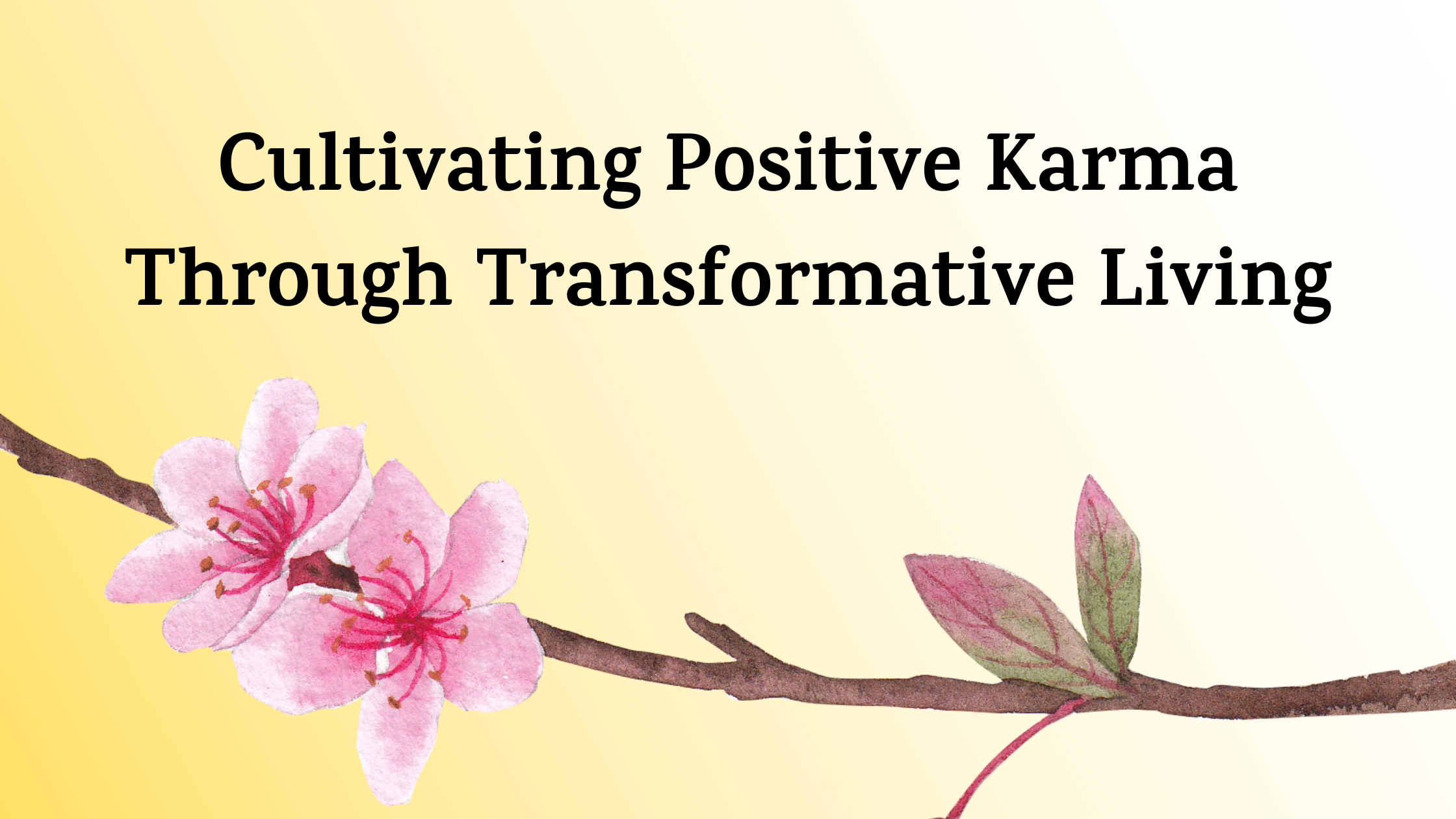Table of Contents
![]()

Karma: The Foundation
Karma is often understood as the universal principle of cause and effect, where one’s actions and thoughts inevitably influence their future experiences. The theory posits that positive actions and thoughts generate beneficial outcomes, while negative ones can lead to adverse results. Embracing this concept means accepting that we shape our lives through our choices, intentions, and behaviors.

Step 1: Love and Forgive Yourself
Self-love and self-forgiveness are critical for cultivating positive karma. Here’s why:
- Overcoming Self-Doubt: Many people grapple with self-criticism and regret. These feelings can create a barrier to personal growth and happiness. By focusing on self-love, you counteract these negative emotions, which helps you build a more positive self-image and outlook on life.
- Daily Affirmations: Affirmations are positive statements that can shift your mindset. By affirming your worth and goodness, you reinforce a positive self-narrative, which can influence your behavior and interactions with others.
- Impact on Others: When you embrace self-love and forgiveness, you naturally project a more positive attitude toward others. This shift in perspective fosters healthier relationships and interactions, which contributes to a more positive cycle of karma.

Step 2: Love and Forgive Others
Forgiving others is a powerful act that aligns with the principles of karma. Here’s why this step is crucial:
- Releasing Grudges: Holding onto anger or resentment can hinder your personal growth and emotional well-being. Forgiveness helps you release these negative emotions, which allows for healing and growth.
- Improving Relationships: By practicing forgiveness, you clear emotional blocks that might be affecting your relationships. This openness can lead to more harmonious and fulfilling connections with others.
- Creating Positive Energy: When you let go of negative feelings, you create space for positive energy. This shift not only benefits your own well-being but also positively influences those around you.

Step 3: Practice Kindness and Compassion
Kindness and compassion are fundamental to creating good karma:
- Living with Compassion: Compassion involves understanding and empathizing with others’ experiences and struggles. By practicing compassion, you foster an environment where positive interactions and support are more prevalent.
- The Golden Rule: This principle is about treating others as you wish to be treated. It underscores the importance of mutual respect and empathy in creating positive interactions and outcomes.
- Gandhi’s Philosophy: Gandhi’s call to “be the change you want to see” highlights that embodying the qualities you wish to receive is essential for attracting positive karma. When you live in alignment with these values, you contribute to a more positive world.

Step 4: Reflect
Self-reflection is vital for understanding and improving your karma:
- Introspection: Reflecting on your actions, thoughts, and experiences helps you gain insight into your behaviors and their impact. This self-awareness can guide you in making more thoughtful choices.
- Avoiding Judgment: The goal of reflection is not to criticize yourself harshly but to understand your role in various situations. This non-judgmental approach helps you learn and grow from your experiences.

Step 5: Practice Consistently
Consistency is key in integrating positive practices into your life:
- Daily Application: Positive changes become ingrained when practiced consistently. Regularly engaging in self-love, forgiveness, kindness, and reflection helps make these practices a natural part of your life.
- Long-Term Impact: Over time, these consistent efforts create a cumulative effect, generating a cycle of positive karma that influences your life and the lives of those around you.
By incorporating these steps into your daily routine, you align your actions with the principles of karma, fostering a more positive and fulfilling life experience.
Share This





Be the first to comment